Fifth Grade
Fifth Grade math students build on the concepts that were learned in the early grades where they worked on using whole numbers and internalizing mathematical concepts. Students in Fifth Grade advance to more complex reasoning and word problems. Students study orders of operations with whole numbers, progressing to manipulating fractions and decimals while learning how to use the different operations. In Geometry, students begin the study of volume, triangles and quadrilaterals. Later, they develop a more sophisticated understanding of math through the examination of number patterns.
The Humanities program focuses on building reading, writing, and critical thinking skills through a blended study of history and literature. In Fifth Grade, students study ancient civilizations and read ancient stories, including The Epic of Gilgamesh and various Greek myths. Students develop age-appropriate foundational skills in historical thinking, close reading, making an argument, using textual evidence and structuring essays. Students reflect and think critically in discussions, journal writes, and creative projects. Vocabulary, grammar, and mechanics are taught and practiced in context.
Fifth Grade students learn basic conversational skills in the present tense. They learn introductions, numbers, weather, dates, family, town/city/house vocabulary, sports and leisure activities, regular -er verbs, and the most common irregular verbs (etre, faire, avoir).
Fifth Grade is the first year where one theme runs throughout the year. The theme for Fifth Grade is The Universe. Fifth graders are ready for more abstract concepts and love exploring the “What ifs”. Topics include the Universe, Stars and Galaxies, electromagnetic radiation, nuclear fusion, the periodic table of elements, the solar system, exploring space rocketry, rockets and space probes, and if time permits, the Earth, Moon and Sun. Students also begin to work with Spike Robots.
Students have a double period in the Imagination Lab to allow them to work on more complex STEAM projects that can incorporate engineering, design, robotics, and more.
Intermediate students are introduced to more complex art skills and concepts which include shading to create more three dimensional drawings, perspectives with vanishing points, printmaking to create multiples, wheelworking, and assemblage sculptures. Along with each project there is a theme relating to an Artist, art movement/style, cultural and/or historical connection. For example, students learned how to create coil pots in the ceramic studio while learning about Peruvian and Incan ceramics. Seeing and talking about pottery from hundreds of years ago gives the students a new perspective.
BCD uses a blend of traditional and non-traditional music instruction in order to make music more accessible to all student abilities. Using an “Action Learning” approach to music instruction, students put into practice what they learn in class by creating music that is meaningful to them. Students explore composition through the utilization of Orff instruments, singing, ukulele, bucket drumming, and music technology.
Fifth Grade students may participate in concert band. Students may choose from a selected list of wind and percussion instruments. Students participate in small group lessons once per week during the school day as well as meet once a week as an entire ensemble. Concert band provides a great way for students to engage with other musicians while learning to work together, and follow conductor cues in a traditional setting.
In Fifth Grade, students continue SEL in mixed grade meetings led by homeroom teachers. They continue to explore themes of empathy and self-awareness, increasingly focused on collaboration and kindness.
Students spend two sessions a week in Shop working on woodworking and other projects based on their skill levels and understanding of safety protocols. Instruction is based on a solid grasp of the fundamentals of tools usage and safety protocols.
Students focus on the tenets of digital citizenship and continue to work on proficiency in the Google platform.
In Fifth Grade and beyond, the focus shifts to the learning and application of survival skills. This includes many hands-on activities, such as building trails and campsites. The academic themes include Poisonous & Invasive Plants, Outdoor Exploration, Survival Skills, Forest Forensics, Winter Survival Skills, Maple Tapping, Navigation, and Camping. Each theme will feature lessons and activities designed to challenge the students and develop specific skills needed in the wilderness.
In Fifth Grade, the focus shifts to developing the students’ strength, endurance, and coordination. These skills will be honed throughout the year as the students participate in a variety of sports and challenges. The students will also participate in many team-oriented activities, creating a learning environment that requires strong communication and cooperation. An emphasis will consistently be placed on teamwork and sportsmanship as students learn to compete with integrity and respect for others.
Department Faculty





